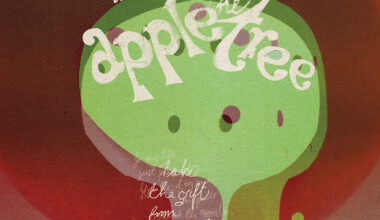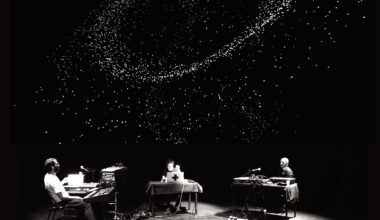German synth master’s nine millionth album is a lengthy, patchy (geddit?) affair

Back in the early 1970s, Klaus Schulze released himself from Tangerine Dream and his space rock project Ash Ra Tempel to produce his debut solo album, ‘Irrlicht’. Sounding like a ghostly drone orchestra, the album set Schulze on an exploration of electronic music that would span zillions of albums, while Tangerine Dream ever-so-slowly faded under the tutelage of Edgar Froese. It’s difficult to spot synthesisers on ‘Irrlicht’, but here we are in 2013 and Klaus Schulze is the king of synthesis, an unstoppable force who perhaps values quantity over quality but who is an undisputed keyboard wizard, with Moogs coming out of his ears.
‘Shadowlands’ comprises three expansive ambient pieces, with two bonus tracks on the limited edition extra CD adding another 75 minutes of ethereal electronic exploration. The opener, ‘Shadowlights’, starts seriously, with contemplative chords and religious incantations lifted by Thomas Kagermann’s violin. ‘In Between’ is softer: vocals chime in beautiful pitch with simple synth sequences, a sound barely developed further on the next track, ‘Licht Und Schatten’. The first bonus track, the 56-minute ‘Rhodes Violin’, brings to mind the meandering solos of Ash Ra Tempel, only with the instruments of its title rather than twiddly prog guitar. The closing track, ‘Tibetan Loops’, mixes intricately processed throat singing with Eastern motifs from the violin.
The rest of the album never quite matches the sombre opener and the sequences can feel all-too programmed. Schulze’s last solo album was seven years ago and it warrants a comparison. ‘Kontinuum’ was more urgent: the LFOs positively shimmered and the sounds resonated brighter. ‘Shadowlands’ is Schulze reinventing himself again, but he went in search of meaning in the raw naturalism of the violin and let a few too many bytes of toasty digitalism fall onto the studio floor in the edit. The master of electronics turned off too many machines.
So what we have with this Klaus Schulze – that king of synthesis, that unstoppable force – is the sound of someone slowing down. What he’s achieved is incredible, even when it was hit-and-miss, such as ‘Dark Side Of The Moog’ with the dearly missed Pete Namlook. New technologies sometimes hurt Schulze, especially with his unwise 1990s sampling era, or his “screechy squealy opera phase” (not its official name, but if you ironically recall ‘Beyond Recall’, you’ll know). But new technologies have also been his strength and that’s perhaps something I wanted to hear more of on ‘Shadowlands’. One for the fans.





